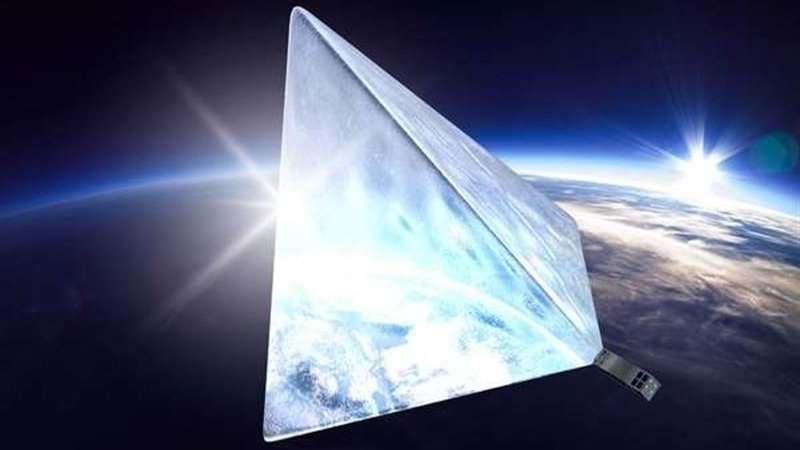Crowdfunded Russian satellite will be used to help fight space junk
As well as shining as bright as a star

Last month, we wrote about a team of Russian engineers building a satellite that would appear as the brightest object in the sky, but at the time there didn't seem to be any real purpose to the mission.
Now, however, the project leaders have announced that the spacecraft - named Mayak (which translates to 'Beacon') - will carry a prototype of an aerobraking system that could help combat the problem of space junk.
Satellites that are decommissioned tend to remain in orbit: dead lumps of metal whizzing around the Earth at about 6,700mph. That occasionally proves a problem when they hit something that's still operating - several times, the International Space Station has had to manoeuvre out of the way of an approaching piece of space junk.
Aerodynamic
Mayak will test an aerodynamic system that could allow space objects to slow themselves down without thrusters - enough to cause them to fall back to Earth and burn up in the atmosphere. It'll also lower the satellite's orbital time from a year to just a month.
The team also told Techradar that it wants "to explore Earth's upper atmosphere density and verify algorithms for calculations of apparent magnitude of space objects and satellites".
The Russian space agency, Roscosmos, has given the green light for the project to be launched on a Soyuz rocket in summer 2016. But to get there, the team will need to raise money for the manufacturing of the production unit.
Fridge Magnets
The Mayak engineers have raised approximately $33,000 to date for that task, but are now asking for an additional $45,000 on Kickstarter to make it happen.
Get daily insight, inspiration and deals in your inbox
Sign up for breaking news, reviews, opinion, top tech deals, and more.
Among the rewards on offer are access to a special Mayak app and various branded goods - including pet collars, fridge magnets and even a Macbook Air. All the data collected by the project will also be published open-access.
"In the previous funding round we raised money for the design and stratospheric tests of Mayak. Now, with all the collected experience, we're aiming to build the actual working satellite," team member Alex Senchushkin has written on the Kickstarter page. "Join our team, and very soon you'll be able to proudly say: 'That was me who lit this star up!'"
